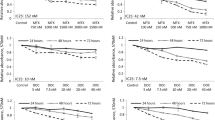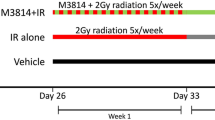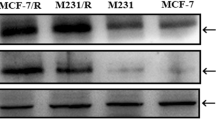Abstract
Purpose: Adenovirus-mediated p53 gene therapy for cancer is currently undergoing phase I/II clinical trials. The drug used in our clinical trials (p53 Ad; ACN53; SCH58500) consists of a replication-deficient, type 5 adenovirus vector expressing human wildtype p53 tumor suppressor under the control of the cytomegalovirus promoter. In preclinical models, p53 Ad has therapeutic efficacy against a wide range of human tumor types containing nonfunctional p53, both in vitro and in vivo. Results from early clinical trials using p53 gene therapy by itself support optimism for the future of this therapeutic approach. However, it is likely that many phase II/III trials will incorporate an arm comparing traditional chemotherapy against chemotherapy combined with p53 gene therapy. Therefore, it is important to study possible interactions between p53 Ad and chemotherapeutic drugs in preclinical models before starting the clinical trials. Methods: Proliferation of tumor cells was quantitated after incubation with various combinations of p53 Ad and chemotherapeutic drugs. Human tumor xenografts in scid mice were dosed with intraperitoneal or intratumoral p53 Ad with or without chemotherapeutic drugs and the tumor burden after therapy monitored. Results: p53 Ad combined with cisplatin, doxorubicin, 5-fluorouracil, methotrexate, or etoposide inhibited cell proliferation more effectively than chemotherapy alone in SCC-9 head and neck, SCC-15 head and neck, SCC-25 head and neck, SK-OV-3 ovarian, DU-145 prostate, MDA-MB-468 breast, and MDA-MB-231 breast tumor cells. No obvious dependence on dosing schedule was observed. Greater anticancer efficacy was also demonstrated in four human tumor xenograft models in vivo. Of particular significance, there was enhanced efficacy using the three drug combination of p53 Ad, cisplatin, and paclitaxel in an ovarian cancer model. Conclusion: These results support the combination of p53 gene therapy with chemotherapy in clinical trials.
Similar content being viewed by others
Author information
Authors and Affiliations
Additional information
Received: 5 October 1998 / Accepted: 3 December 1998
Rights and permissions
About this article
Cite this article
Gurnani, M., Lipari, P., Dell, J. et al. Adenovirus-mediated p53 gene therapy has greater efficacy when combined with chemotherapy against human head and neck, ovarian, prostate, and breast cancer. Cancer Chemother Pharmacol 44, 143–151 (1999). https://doi.org/10.1007/s002800050959
Issue Date:
DOI: https://doi.org/10.1007/s002800050959




